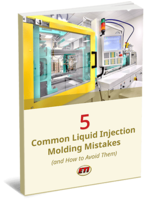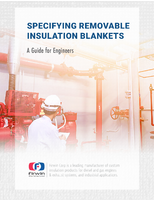Standards cover managed computer systems and oil disposal.
Press Release Summary:
INCITS 5302013, Information technology - Architecture for Managed Computing Systems, defines the Distributed Management Task Force Common Information Model Infrastructure as an approach to the management of systems and networks that applies the basic structuring and conceptualization techniques of the object-oriented paradigm. ASME A112.14.62010 (R2015), FOG (Fats, Oils, and Greases) Disposal Systems establishes requirements for FOG disposal systems.
Original Press Release:
Voluntary Standards Cover the Spectrum: from Managed Computer Systems to Oil Disposal Systems
In an effort to communicate the vital role that standards play in daily life, the American National Standards Institute (ANSI) will publish, on an ongoing basis, a series of snapshots of the diverse standards initiatives undertaken in the global and national standards arena, many of which are performed by ANSI members and ANSI-accredited standards developers. Two of the latest selections follow:
Managed Computer Systems
Interoperable computer systems are essential to businesses and consumers across the globe. To drive the international adoption of interoperable standards, the Distributed Management Task Force (DMTF) fosters the creation of managed computer systems that enable diverse traditional and emerging technologies, including cloud, virtualization, network, and infrastructure. A recently published American National Standard (ANS) utilizes the DMTF foundation to define a Common Information Model (CIM).
INCITS 5302013, Information technology -Â Architecture for Managed Computing Systems, defines the DMTF CIM Infrastructure as an approach to the management of systems and networks that applies the basic structuring and conceptualization techniques of the object-oriented paradigm. The approach uses a uniform modeling formalism that, together with the basic repertoire of object-oriented constructs, supports the cooperative development of an object-oriented schema across multiple organizations.
The new ANS was developed by the InterNational Committee for Information Technology Standards (INCITS), an ANSI organizational member and accredited standards developer. INCITS is a non-profit organization dedicated to the effective use of information and communication technology (ICT) through standardization in a way that balances the interests of all stakeholders and increases global competitiveness of the industry. From cloud computing to communications, from transportation to health care technologies, INCITS is at the forefront of innovation.
Oil Disposal Systems
Fats, oils, and grease (FOG), such as cooking oil, meat fats, butter, lard, sauces, and numerous other byproducts of cooking, are used every day in kitchens everywhere. If not disposed of properly, FOG accumulates in the sewer system in much the same way that cholesterol accumulates in arteries causing sewage backups and overflows. A sewage overflow could potentially cause an environmental hazard requiring a costly cleanup and leading to increased utility bills.
The American Society of Mechanical Engineers (ASME) recently released an updated ANS that establishes requirements for FOG disposal systems. ASME A112.14.62010 (R2015), FOG (Fats, Oils, and Greases) Disposal Systems, provides guidance on how FOG disposal systems shall a) be designed to remove FOG from effluent (liquid waste or sewage discharged to a water source); b) retain separated FOG; and c) internally dispose retained FOG by means and methods of mass and volume reduction. The use of alternate materials or methods is permitted, provided the proposed material and method complies with the performance requirements and intent of ASME A112.14.62010 (R2015).
ASME, an ANSI organizational member and accredited standards developer, is a non-profit professional organization promoting the art, science, and practice of mechanical and multidisciplinary engineering and allied sciences. ASME develops codes and standards that enhance public safety, and enables learning and technical exchange opportunities benefiting the global engineering and technology community.




